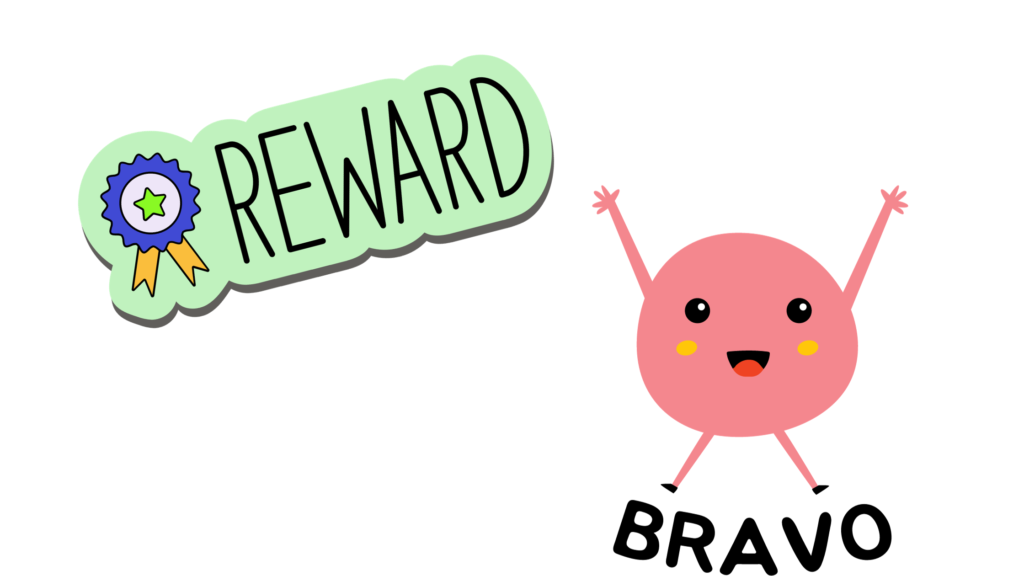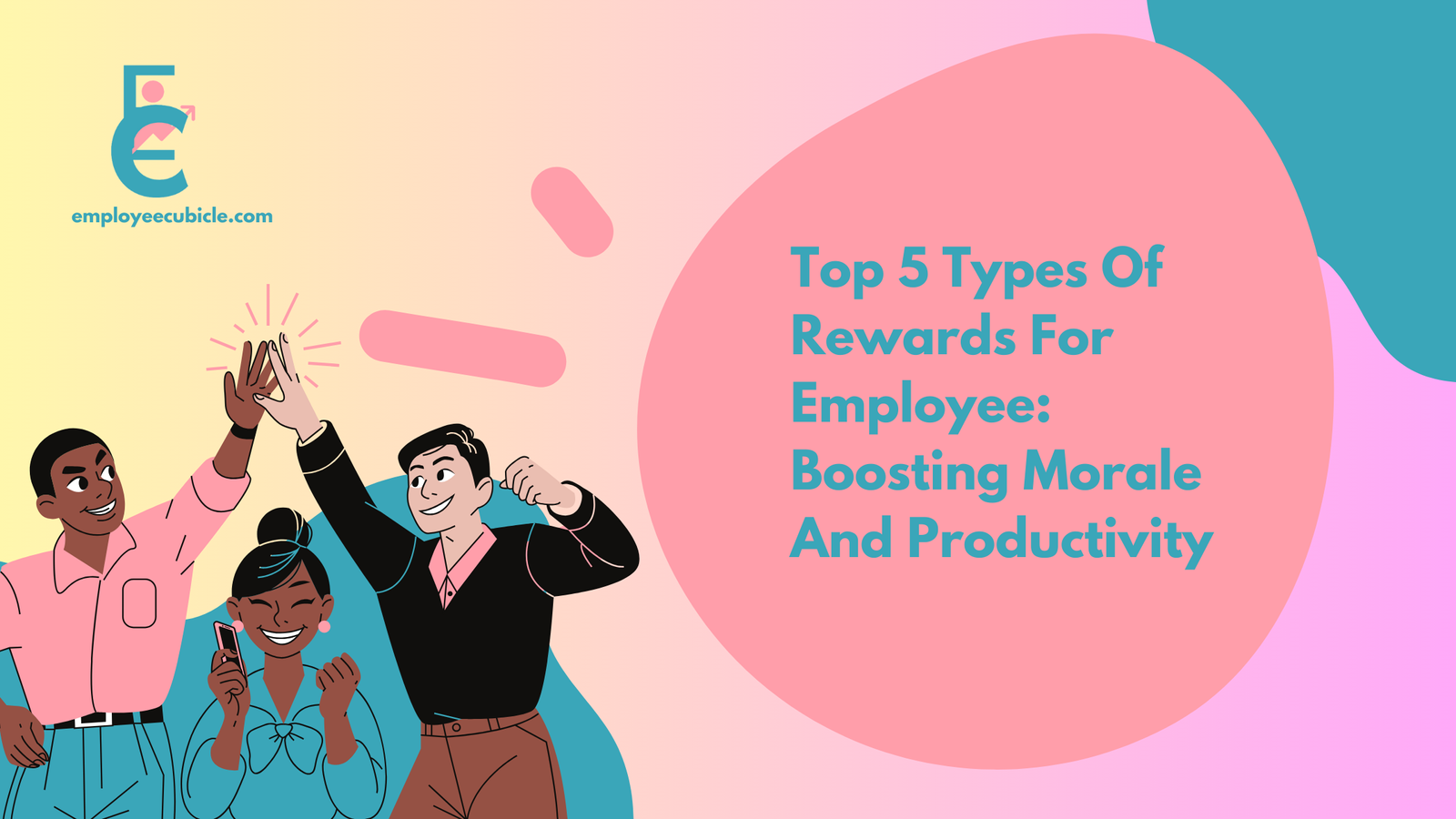Ever wondered about the diverse types of rewards for employee and how they impact the workplace? As we navigate the intricate world of human resources and team dynamics, it’s evident that recognition plays a pivotal role in shaping an organization’s success. Whether you’re an employee eager to understand the rewards you could receive or an HR professional striving to foster a vibrant workplace culture, understanding these rewards is paramount. From intrinsic motivators that touch the soul to tangible tokens that bring a smile, rewards have an undeniable impact on morale and productivity.
In this comprehensive guide, we promise to unveil the top 5 types of rewards for employee that not only appreciate and acknowledge but also drive passion, dedication, and excellence in the workspace. Dive in, and discover the magic of well-crafted rewards and their transformative power!
What are 5 Types of Rewards for Employee?
- Intrinsic Rewards
Intrinsic Rewards refer to the non-tangible motivations and satisfactions an individual derives from performing a task or job. These types of rewards for employee are internal to the individual and arise from the work itself or from the outcomes of the work. Intrinsic rewards relate to one’s personal feelings of accomplishment, growth, purpose, and self-fulfillment rather than external incentives or benefits. They play a significant role in self-motivation and job satisfaction, driven by factors like mastery, autonomy, purpose, and personal growth.
Why Intrinsic Rewards Matter?
- Self-fulfillment: One of the primary drivers behind intrinsic motivation is the personal sense of achievement. Completing a challenging project, mastering a new skill, or simply doing a job well offers a unique kind of satisfaction.
- Alignment with Personal Values: When an individual’s role or task is in line with their personal beliefs or values, it provides a deeper sense of purpose. This alignment is a reward in itself, instilling a sense of pride and belonging.
- Mastery and Growth: Continuous learning and the chance to develop one’s skills can be more rewarding than any monetary incentive. This aspect is particularly prevalent among employees who are eager to climb the professional ladder.
Types of Intrinsic Rewards ✨
- Personal Fulfillment and Accomplishment 🏆
- The genuine pleasure derived from completing a task, project, or goal.
- That internal “Yes, I did it!” moment that ignites pride and boosts self-esteem.
- Sense of Purpose and Meaning 💡
- Understanding the bigger picture and realizing how one’s role contributes to a larger mission or vision.
- The rewarding feeling of being a part of something greater than oneself.
- Skill Mastery and Growth 📚
- The thrill of learning a new skill or refining an existing one.
- The satisfaction that comes with personal and professional development.
- Positive Feedback and Recognition 🌷
- Receiving genuine appreciation for one’s effort, even if it’s just a simple acknowledgment.
- The warm feeling when peers or superiors notice and commend one’s hard work.
- Autonomy and Ownership 🚀
- The reward of being given the trust and freedom to approach tasks or projects in one’s own unique way.
- The contentment that comes with responsibility and the opportunity to make independent decisions.
- Challenge and Engagement 🧠
- The invigorating feeling of diving into complex problems or tasks and emerging victorious.
- Being completely engrossed in one’s work and enjoying every moment of it.
- Creativity and Innovation 💭
- The liberty to introduce and implement new ideas.
- The joy of witnessing one’s original thoughts come to life and make a difference.
- Social Connection and Team Collaboration 🤝
- The pleasure of working in harmony with colleagues.
- The shared joy of team accomplishments and mutual growth.
- Job Enrichment and Variety 🌈
- Engaging in diverse tasks, ensuring that every day offers something new and exciting.
- The anticipation and excitement of new challenges and varied responsibilities.
- Moral Satisfaction ❤️
- Knowing that one’s job contributes positively to society or the environment.
- The fulfillment that comes from ethical practices and doing the “right” thing.

- Extrinsic Rewards
Extrinsic rewards are tangible or external incentives given for specific actions or achievements, such as bonuses, gifts, or promotions. Unlike intrinsic rewards, which come from internal feelings of satisfaction, extrinsic rewards are provided by external sources, often used to motivate individuals in settings like the workplace.
Why Extrinsic Rewards? 🤷♂️
- Tangible Appreciation: Extrinsic rewards serve as a physical manifestation of recognition, showing employees that their hard work hasn’t gone unnoticed.
- Motivational Boosters: These types of rewards for employee can push employees to achieve more, knowing there’s a tangible benefit awaiting them.
- Enhanced Loyalty: When employees feel valued through tangible rewards, they’re more likely to develop a deeper sense of loyalty to the company.
Types of Extrinsic Rewards 🎁
- Monetary Incentives: 💰
- Bonuses: A lump-sum given for exceptional performance or year-end achievements.
- Salary Raises: Incremental increases in an employee’s basic pay.
- Commissions: Especially common in sales roles, where employees earn based on their sales volume.
- Benefits and Perks: 🌴
- Health Insurance: Covers medical expenses, a significant boon for employees.
- Paid Time Off: Holidays, vacations, or even mental health days.
- Retirement Benefits: Ensuring long-term security for employees.
- Recognition-Based Rewards: 🏅
- Employee of the Month: A monthly spotlight for standout performers.
- Awards Ceremonies: Annual or bi-annual events celebrating top achievers.
- Public Acknowledgment: Recognizing achievements in team meetings or company newsletters.
- Tangible Gifts: 🎂
- Gift Cards: Offering versatility as employees can choose their own gifts.
- Company Merchandise: From branded T-shirts to mugs, making employees feel a part of the team.
- Special Treats: Could be anything from a birthday cake to tickets to a popular event.
- Opportunities for Advancement: 📈
- Promotions: Elevating an employee’s position based on performance.
- Training Programs: External courses or workshops that upskill employees.
- Special Assignments: Offering challenging roles or projects as a form of reward.

- Financial Reward
A financial reward is a monetary incentive or compensation given to an individual, often in recognition of their effort, performance, or achievement. It serves as a tangible means of appreciation and motivation and can take various forms, such as bonuses, salary raises, commissions, or stock options, primarily used in the workplace to boost productivity, retain talent, and foster loyalty.
The Power of Financial Rewards 🚀
- Direct Motivation: Money often serves as a clear and direct motivator for employees, pushing them to achieve targets or surpass expectations.
- Tangible Appreciation: While words of praise are invaluable, a financial bonus or raise offers tangible proof of an employee’s value to the organization.
- Enhanced Loyalty and Retention: Competitive financial rewards can ensure employees feel valued, reducing the allure of other job offers and increasing company loyalty.
Types of Financial Rewards 💰
- Bonuses: A popular form, bonuses are often linked to performance, either of the individual, team, or company.
- Salary Raises: Incremental increases in base pay as a reward for consistent performance or increased responsibilities.
- Commissions: Predominantly in sales roles, these are earnings based on the volume or value of sales made.
- Profit Sharing: Employees receive a share of the company’s profits, fostering a sense of ownership and alignment with company success.
- Stock Options: Offering employees shares or options to buy shares can make them feel more invested in the company’s long-term growth.
- Sign-on Bonuses: One-time payments made to new employees, often used to attract top talent.

- Time-Based Rewards
Time-Based Rewards refer to incentives related to the allocation and usage of time in the workplace. Instead of monetary or tangible benefits, these types of rewards for employees offer employees flexibility, extended breaks, or additional time off, recognizing their efforts and promoting work-life balance. They aim to enhance job satisfaction, boost morale, and accommodate individual needs and preferences, ultimately fostering a more motivated and loyal workforce. ⏰🎁 Let’s wind the clock and explore the essence of time-based rewards. 🔄
The Significance of Time-Based Rewards 🌟
- Flexibility and Autonomy: Granting employees control over their time fosters trust and can elevate their sense of autonomy and job satisfaction.
- Work-Life Balance: These types of rewards for employee often lead to a more balanced life, ensuring employees recharge and return to work with renewed vigor.
- Boosted Morale: Recognizing that everyone values their personal time, these rewards can boost morale and enhance loyalty.
Types of Time-Based Rewards ⌛
- Flexible Work Hours: Allowing employees to choose their start and end times, catering to their personal schedules and peak productivity periods.
- Compensatory Off: Awarding an extra day off for extra hours worked, ensuring no burnout.
- Extended Breaks: Whether it’s a longer lunch or additional short breaks, this can refresh and recharge employees during the workday.
- Remote Work Days: Letting employees work from the comfort of their homes or other locations, reducing commute stress.
- Sabbaticals: Extended breaks that allow employees to pursue personal projects, travel, or simply rest.
- Recognition Rewards
Recognition Rewards are accolades given to employees to acknowledge their achievements and efforts. These types of rewards for employee, which can range from formal awards to personal notes of thanks, emphasize appreciation over tangible benefits, enhancing morale and workplace satisfaction. 🌟🏆 So, let’s shine a spotlight on these valuable tokens of appreciation! 🎖️
Why Recognition Matters? 🤔
- Boosted Morale: Being recognized for one’s hard work elevates spirits and motivates employees to continue performing at their best.
- Enhanced Loyalty: Employees who feel seen and appreciated are more likely to remain committed to the company.
- Fosters Healthy Competition: A system of recognition can inspire others to achieve and get acknowledged for their contributions.
Types of Recognition Rewards 🏆
- Employee of the Month: A classic way of honoring standout performers, often displayed on a dedicated board for all to see.
- Service Awards: Celebrating tenure by recognizing employees for their dedicated years of service.
- Team Recognition: Applauding the collective efforts of a team, especially after successful project completion or achieving major milestones.
- Spot Awards: 🌟 Instantly rewarding employees for exceptional performance or going beyond the call of duty. These spontaneous awards are immediate and can significantly uplift an employee’s day.
- Peer-to-Peer Recognition: Allowing colleagues to commend each other, fostering a sense of camaraderie and mutual respect.
- Letters of Appreciation: Personalized notes from senior management, acknowledging an employee’s contribution.

Conclusion
In exploring the diverse types of rewards for employee, we’ve seen how each uniquely boosts morale and productivity. From intrinsic satisfaction to tangible financial incentives, these rewards cater to various facets of motivation. Striking the right balance among them is key to fostering a motivated and thriving work environment. As we conclude, remember that the true value of a reward lies in genuinely recognizing and inspiring employees.
Found this insightful? Share your thoughts below or spread the word to spark a conversation on effective rewards in the workplace.



